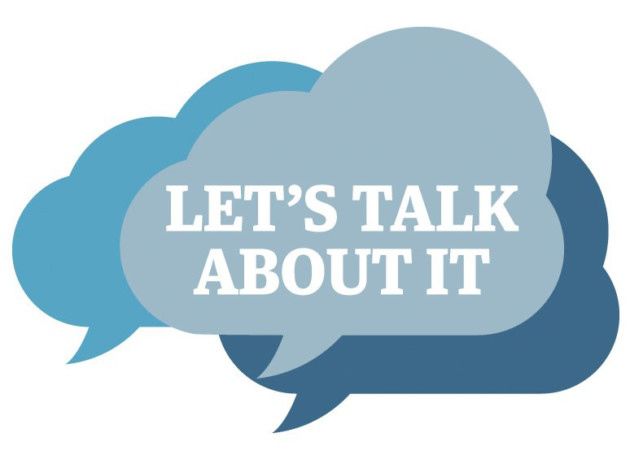Let’s Talk: Breaking Down the Stigma Around Mental Health
Let’s Talk: Breaking Down the Stigma Around Mental Health
April 24, 2018
When I was eight, my family’s barn was struck by lightning, caught fire and burned down. Yes, we have a barn, yes, it was dramatic, and no, it’s not the point of this story.
It’s probably not surprising for you to hear that experiencing a major fire as an eight-year-old is traumatic. I was old enough to understand the magnitude of what had happened and young enough to have trouble processing it. What might be more surprising to you, and what was certainly more surprising to me, was what stemmed from it.
In the months that followed, I struggled with anxiety. It wasn’t that I was constantly scared of there being another fire or that I developed a phobia of lightning and thunderstorms. A reaction like that would have made sense to me. Instead, I constantly worried about the most trivial things. I was terrified to be away from my parents. I cried all the time. I remember sobbing one Saturday morning because I was so freaked out at the idea of going on a Halloween hayride with my Girl Scout troop.
Eventually, my mom suggested I try going to see a psychologist. I was not excited about the idea, but I went. I ended up going regularly for over a year. It took time, but talking about it, understanding it better and learning about ways to cope with it eventually helped me a lot.
Since then, over the past 11 years, I’ve gone through phases. At some points, I have essentially no anxiety. At other points, it flares up again. I went back to the same psychologist for a while when I was 13. I saw another one for a while when I was 17. For me, it ebbs and flows. I know it’s something that might and likely will affect me at different points throughout my life, but I haven’t let it stop me from living the life I want to, and I don’t plan to anytime soon.
The story I just told you is one I haven’t told many of the most important people in my life before. Not my grandparents, not my cousins, not many of my best and closest friends.
I used to not understand why I was so insanely private about my experience with anxiety. I finally realized it was because I was scared that people, even the people who loved me the most, would look at me differently. Who I am with anxiety is incredibly different than who I am without it. I am super independent. I love to travel and try new things. I am calm and level-headed. I rarely cry. That’s the person the people in my life know me as. That’s the person I want to be seen as. That’s the person I am.
I am lucky to be surrounded by the people that I have in my life, and I have always known that not one of them would actually treat me any differently if they knew. Still, it has scared me. Mental health isn’t exactly a casual conversation topic, and a lot of people are uncomfortable talking about it. Announcing to people that I deal with anxiety seemed like it would be a big deal, and I didn’t want it to be.
Over the past few years, I have been so encouraged by the increase in conversations about mental health. Every time I read an article by someone or an interview with a public figure about their own struggles with it, I am inspired by them and their willingness to share. Each person who steps up and speaks out about their own struggles brings us another step closer to destigmatizing mental health issues. I decided that I wanted to be one of those people.
I’m not saying everyone who struggles with their mental health has a duty to share. It is their prerogative to choose how, when and if to tell their stories, just like it was my prerogative to choose to tell mine. What I am saying is that I think it’s important that we as a society promote and provide an environment where everyone can choose to tell their stories and not be viewed any differently because of them.
When my mom first suggested the psychologist, I was scared. Scared of acknowledging what was going on and scared of doing anything about it. She told me that seeking treatment was no different than going to the doctor when I feel sick.
That’s the type of outlook I hope we can all share one day. A society where my mentioning my struggles with anxiety isn’t any different than my roommate mentioning her struggles with asthma. Asthma doesn’t define my roommate. Anxiety doesn’t define me. No one’s health—mental or physical—defines who they are. We should be empathetic and kind. We should listen. We should support each other. We should be careful not to be dismissive of what someone else has been through.
And we should make mental health something that’s okay to talk about.
[Editor’s note: May is Mental Health Month. It is estimated that one in five Americans experience a mental health issue within their lifetime. One in four young adults between the ages of 18 and 24 has been diagnosed or treated by a professional for a mental health condition in the past year. More than 40 percent of college students with a diagnosable mental health condition do not seek help and cite concern of stigma as the number one factor as to why.
Villanova’s University Counseling Center offers services free of charge to all current students. All contacts with the Center are confidential. You can also visit ok2talk.org or nami.org/find-support/teens-young-adults to find resources and support.]






